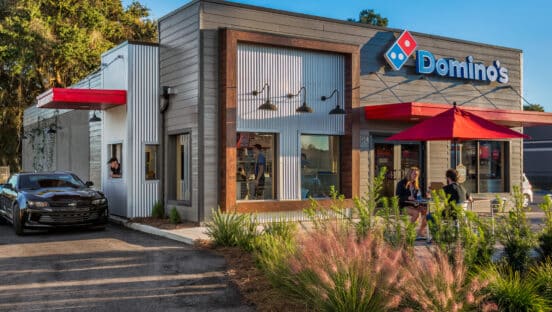Southern Deli Holdings, a franchisee of 73 Sonic Drive-In restaurants, filed for Chapter 11 bankruptcy in federal court last week.
The company, based in North Carolina, also oversees three Fuzzy’s Taco Shops, 14 MOD Pizzas, and was previously one of the largest McAlister’s Deli franchisees in the country, according to Debtwire, a company that provides analysis on debt markets globally. SD Holdings oversees about 1,900 employees.
Inspire Brands-run Sonic said Monday that it will acquire all of SD Holdings’ Sonic locations. An asset-purchase agreement is expected to be filed soon, according to the Charlotte Business Journal. Inspire also directs Buffalo Wild Wings, Arby’s, and Jimmy John’s. Each Sonic will remain open during the acquisition process.
“Adding these Sonic Drive-Ins to our company-owned portfolio is an outstanding opportunity to continue to serve our fans,” Claudia San Pedro, Sonic president, said in a statement. “These drive-ins have a history of strong performance and I’m pleased that we are able to make this investment to help ensure uninterrupted operations and continued employment for the Sonic team members.”
In its Chapter 11 filing, SD Holdings reported it has between $1 million and $10 million in estimated assets and between $10 million and $50 million in liabilities. Sonic is the biggest unsecured trade creditor at $3.87 million.
The company acquired 64 Sonic Drive-In stores in May 2017, according to Debtwire. Seven more were bought in December 2017 and two others in May 2018. SD Holdings also began developing MOD Pizza and Fuzzy’s units. Between 1999 and 2015, SD Holdings purchased more than 60 McAlister Delis—a brand it later sold in 2016 and 2017.
In October 2018, the company was hit with a surprise $7 million tax bill from capital gains from a sale-leaseback transaction it used to acquire its first round of Sonics. Debtwire states SD Holdings continued to invest in MOD and Fuzzy’s franchises, which led to an “unsustainable liquidity situation.” A couple of months later, the company began taking out cash advances.
In 2019, the debtors engaged in discussions for the sale of its Sonic units, according to Debtwire. The sale was supposed to close in November 2019, but was delayed.
In Q4 2019 and January, cash flow continued to decline. To make payroll and pay suppliers, the company stopped paying their lender and cash advance providers, which led to lawsuits, according to Debtwire. Three Fuzzy’s were closed on February 3 to preserve cash. SD Holdings needed a prepetition advance of $450,000 to prevent the liquidation of all its restaurants.








